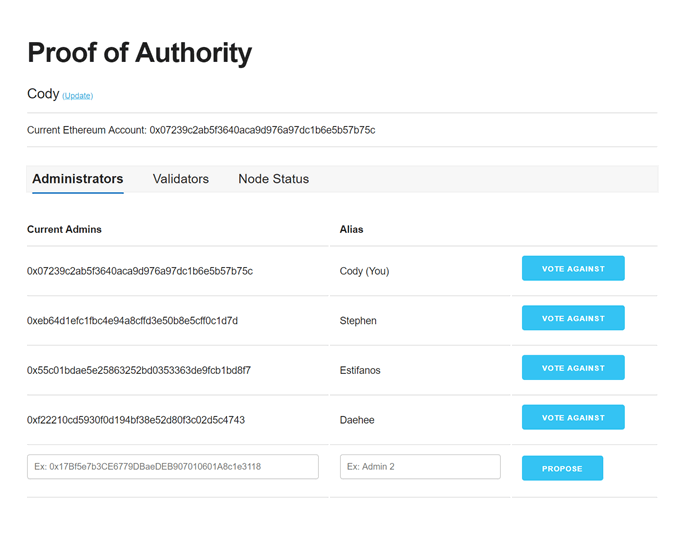
Microsoft’s Azure cloud platform has launched a proof-of-authority (PoA) algorithm on its Ethereum (ETH) blockchain product.
Ethereum on Azure allows users to deploy and configure an Ethereum blockchain network in minutes. And with PoA, the Ethereum network algorithm allows a "more efficient" for developers to build decentralized applications (DApps) for private or consortium networks.
This is a contrast to the previous proof-of-work (PoW) on Azure, whereas the PoA algorithm is based on the principle of approved identities or validators on a blockchain, and doesn't require competition in completing the transactions. This makes PoA more secure than PoW.
What's more PoA also doesn't require tremendous amount of CPU usage like PoW.
"Proof-of-Authority, is more suitable for permissioned networks where all consensus participants are known and reputable. Without the need for mining, Proof-of-Authority is more efficient while still retaining Byzantine fault tolerance," said Microsoft on its blog post, announcing the PoA on Azure.
The announcement from Microsoft has gone largely unnoticed by the cryptocommunity. The lack of coverage shouldn't be mistaken as Cody Born hit an optimistic note about the deployment, saying that:
The Ethereum product here on Azure is equipped with features to ensure its correct functioning and security, such as an identity leasing system, Parity’s web-assembly support, Azure Monitor, and a Governance DApp.

Microsoft first announced the launch of the Ethereum-based Azure cloud computing platform back in 2015. And earlier in June 2018, the R3 blockchain consortium announced that Microsoft, together with 39 global financial companies, had successfully tested its know your customer (KYC) application, running as many as 45 nodes on the cloud computing service.
Blockchain has several practical applications on an enterprise level, and this is why a partnership between Microsoft azure and Consensys Ethereum should be beneficial to the overall cryptocommunity. Financial services firms in particular, are even more eager on implementing blockchain technology.
With Ethereum being used by Microsoft’s enterprise partners, a whole new array of applications can be enabled.
They include things like electronic voting, employee compensations, cloud storage, smart contract enabled agreements, supply chain oversight and more.
Microsoft in putting its effort in this field should speed up the adoption of blockchain technology on enterprise level, and also force others in the competition, such Salesforce and Adobe to rethink their strategies.